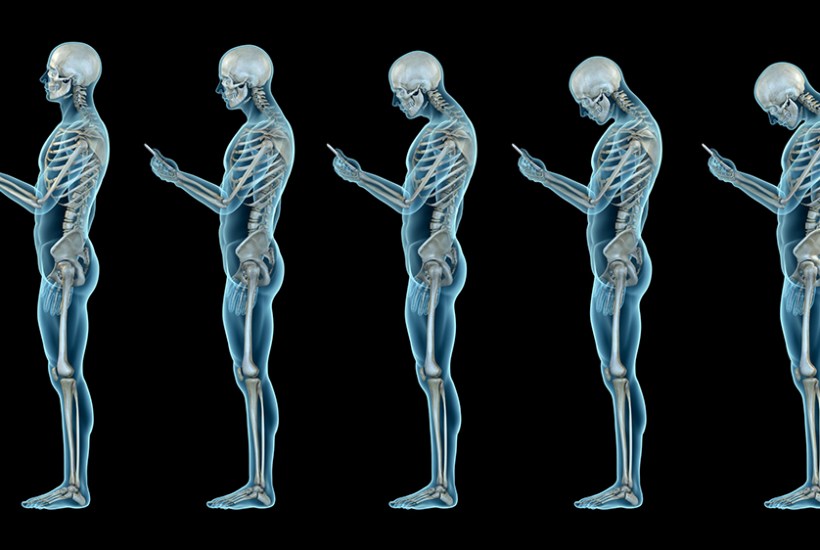‘Would you believe, looking down at your phone can put about 60lb of force on your neck,’ wrote Dr Miriam Stoppard in the Mirror. ‘Lift your phone up to eye level to avoid text neck.’ I didn’t quite understand about the 60lb, but my husband tells me there are other text ailments, notably text claw, a pain in the hand and wrist from too much tippety-tapping with the thumb.
Already a subscriber? Log in
Subscribe for just $2 a week
Try a month of The Spectator Australia absolutely free and without commitment. Not only that but – if you choose to continue – you’ll pay just $2 a week for your first year.
- Unlimited access to spectator.com.au and app
- The weekly edition on the Spectator Australia app
- Spectator podcasts and newsletters
- Full access to spectator.co.uk
Or
Unlock this article
You might disagree with half of it, but you’ll enjoy reading all of it. Try your first month for free, then just $2 a week for the remainder of your first year.









Comments
Don't miss out
Join the conversation with other Spectator Australia readers. Subscribe to leave a comment.
SUBSCRIBEAlready a subscriber? Log in